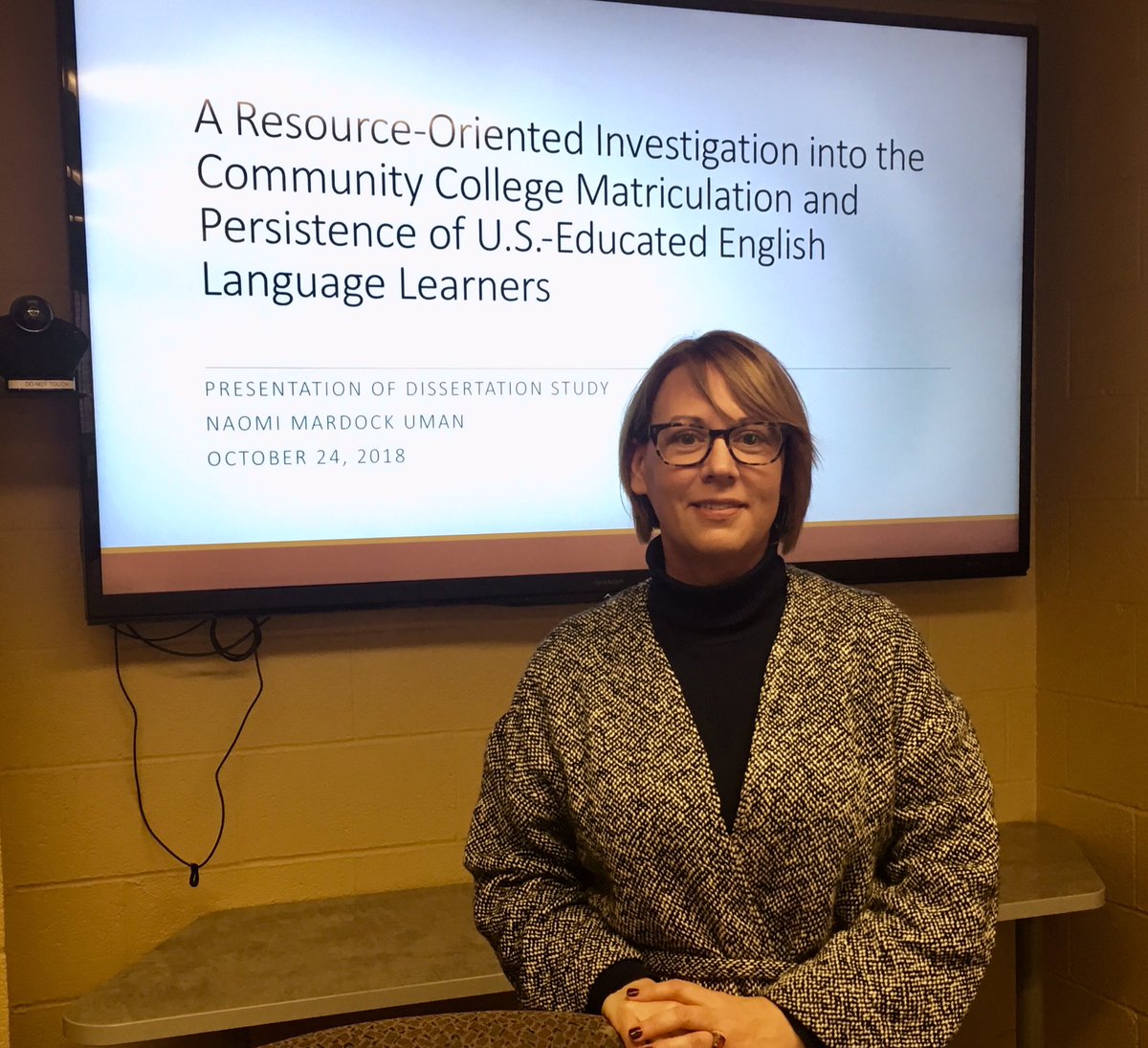
Dr. Naomi Mardock Uman, a UNL recent Ph.D. graduate of the Department of Educational Administration, recently won the 2019 Dissertation of the Year Award from the Council for the Study of Community Colleges, the nation's top community college studies association. The dissertation, entitled “A Resource-Oriented Investigation into the Community College Matriculation and Persistence of U.S.-Educated English Language Learners,” examined how U.S. educated English language learners - largely immigrants to the U.S. as children or adolescents - navigate the college and student support systems to find success.
The highly competitive annual award honors doctoral students whose dissertations exhibit excellence in scholarly inquiry, illustrate originality of thought, and include significant findings that make a substantial contribution to the extant literature on community colleges. “I am most proud of having amplified the voices of the student participants in the study as best I could,” Dr. Mardock Uman said. “I hope that this award will bring needed attention to the experiences of community college students who are learning English and prompt researchers and practitioners to consider ways that community colleges can provide effective academic and student support for them.”
Mardock Uman currently serves as an instructor of English as a Second Language at Metropolitan Community College (MCC) in Omaha and she has already begun to put into practice the results of this study. She is using the results of the study to develop support services offered to English learners through the new Language and Literacy Center at MCC. “The findings of the study have underscored the importance of providing holistic support for English learners and I hope that they prompt community college leaders to consider how to create positions that allow institutional agents to act as both academic and student support for English learners and other students with similar needs,” she said. “I hope to have the opportunity to pursue a community college-focused research agenda that continues to examine how college environments mediate the ways in which students from language minority and other traditionally under-served backgrounds are able to leverage their strengths and resources toward successful educational outcomes.”